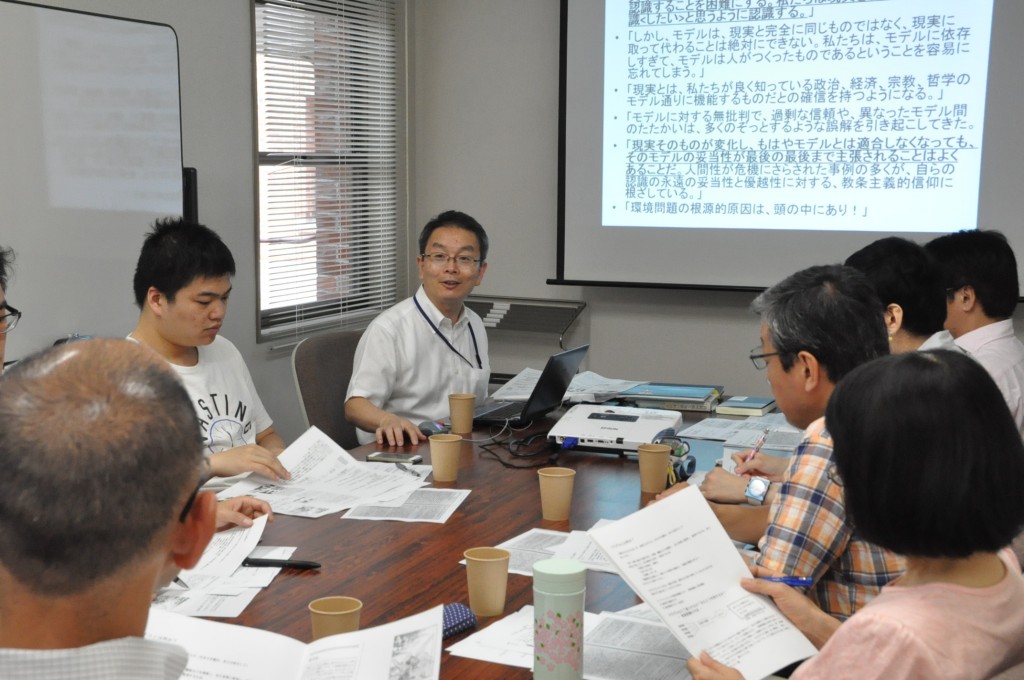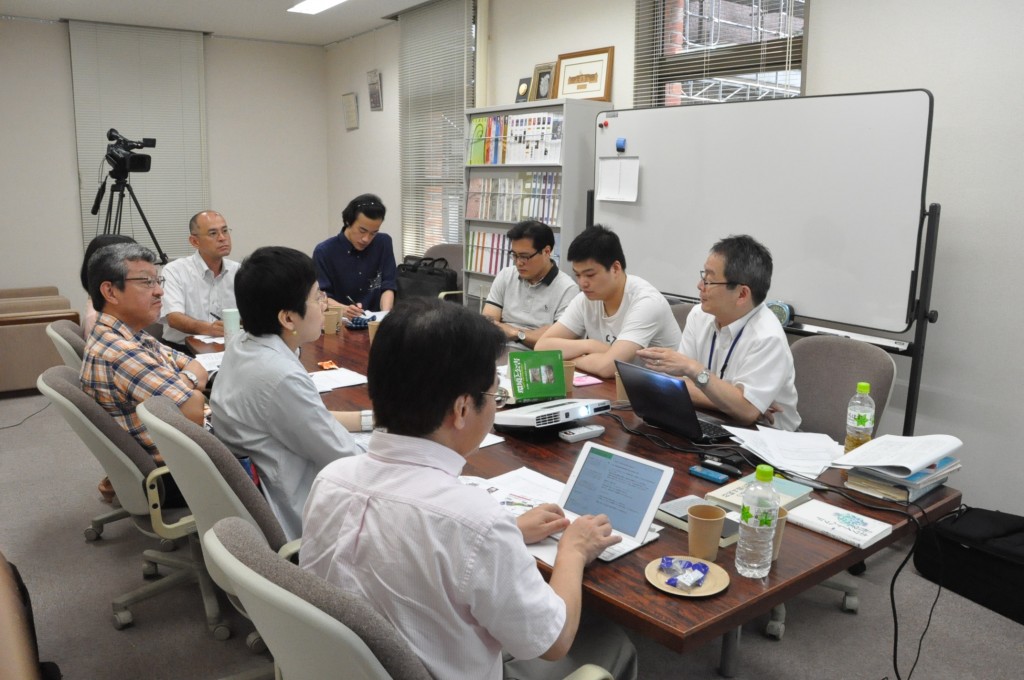Center for Interdisciplinary Study of Monotheistic Religions(CISMOR)Doshisha University
> Past Research Activities > A Dialogue between Ecological Economy and Christian TheologyPast Research Activities
Study Meeting
A Dialogue between Ecological Economy and Christian Theology
| Date: |
2014/07/12 14:00-17:00 |
|---|---|
| Place: | Conference Room, Taishinkan, Imadegawa Campus, Doshisha University |
| Speaker: |
|
| Commentator: |
|
| Summary: | |
|
In this research meeting, Prof. Yoshihiko Wada of the Faculty of Economics, Doshisha University, gave a presentation titled "Dialogue between Ecological Economics and Christian Theology." Prof. Wada first defined Ecological Economics as "an academic discipline in which interdisciplinary research is conducted into human economic activities as part of overall ecological circulation, for the purpose of attaining sustainability." He then explained it based on William E. Rees' concept, from the perspective of "model." The human perception of reality requires a model, but there is often a gap between the model and reality because they are not identical, and a wrong model causes various problems. Environmental problems are among such problems. In other words, the fundamental cause of environmental problems is the inaccurate representation of reality by models. The model of Ecological Economics differs from the model of current mainstream Economics. In Ecological Economics, resources are viewed as limited; limits are also recognized in markets, and science and technology; it is believed that economic activities should be contained within the carrying capacity of the environment; and importance is attached to the notions of holism, an organic worldview, person-in-community, and fair distribution rather than the expansion of economic scale – notions strongly influenced by the process theology of John B. Cobb Jr., influenced in his turn by the process philosophy of Whitehead. Cobb reexamines scholarship, including Economics, from the perspective of the organic worldview. Firstly, one crucial problem with scholarship as it is today is the compartmentalization of specialization. This encourages researchers and experts to not feel responsible for the whole. To change this, it would be necessary to apply expanded life cycle analysis (LCA), construct a new technological assessment system, and, to counter the weakening of the sense of responsibility, publicly announce environment impact assessment results and the names of assessors and policy makers; hold investors and fund providers responsible for research results; protect whistle blowers; and adopt a zero-tolerance attitude toward the destruction of survival bases. The second problem is the fallacy of misplaced concreteness. For example, increasing GDP is considered favorable, but in reality, the quantitative increase does not necessarily lead to higher quality of life. Thirdly, scholarship must shift from "Economism" to "Earthism." One way to do this is to improve economic indices so that they better reflect economic growth including negative aspects, or adopt indices such as ISEW (Index of Sustainable Economic Welfare) and GPI (Genuine Progress Index). Rees and Wackernagel developed the concept of Ecological Footprint index. In this concept, sustainability means living well within the means of nature. It is therefore primordially important not to surpass nature's capacity. The Ecological Footprint index represents a land area that corresponds to the load imposed on the environment to sustain human economic activities. In this concept, the total productive land and water area on the Earth is 1.8 global hectares (gha) per person, whereas the worldwide demand is 2.6 gha per person: equilibrium is not attained, with demand surpassing supply. As for figures by country, one American's resource consumption is 9.4 gha, and one Japanese, 4.9 gha. Prof. Wada concluded his presentation with an emphasis on the need for realizing a global economy that is manageable within the Earth's carrying capacity. Active discussions took place in the question and answer session that followed the presentation. (Tomoki Asaka, Research Fellow, CISMOR) |
|
|
Program20140712 |
|

